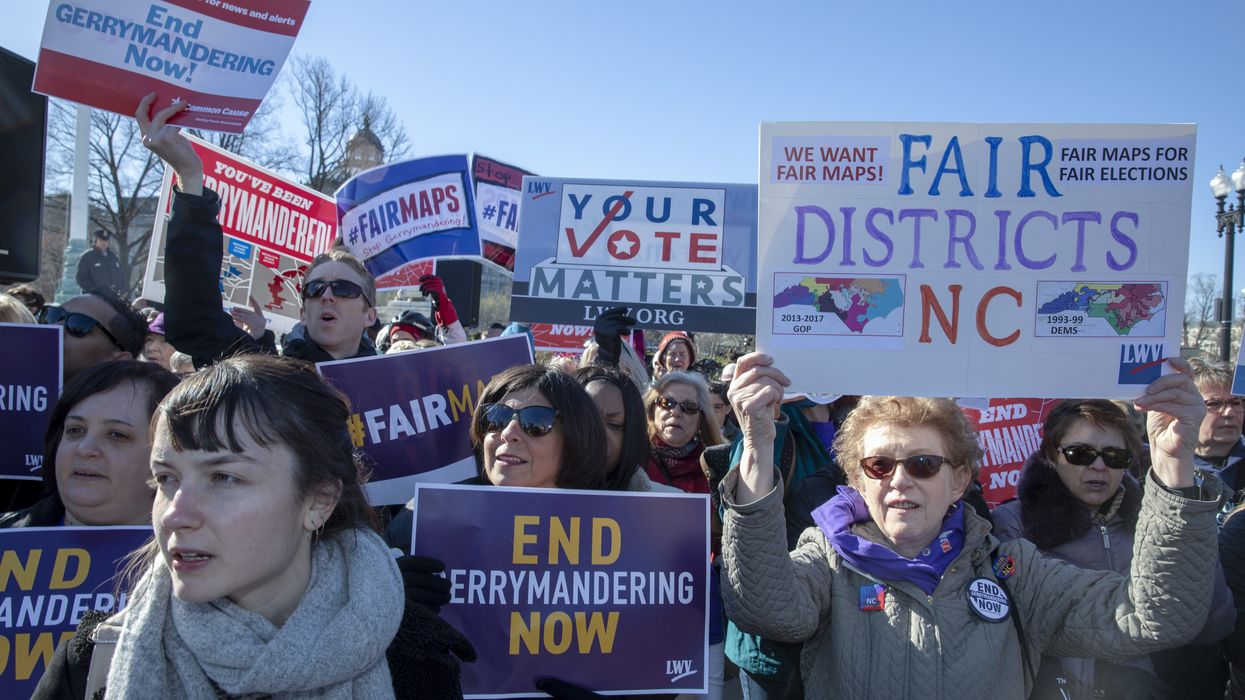Here’s why. I believe:
— Every worker should have the right to democracy in their workplace (a union), and that nobody who works full time should have to live in poverty because the minimum wage hasn’t gone up in a stupid amount of time. I’m a far-left radical.
— Retired people shouldn’t have to pay income taxes on their Social Security (the way it was before Reagan), that morbidly rich people should pay into the system like the rest of us, that Social Security should pay enough to live modestly on, and that Medicare should cover all our expenses with minimum hassle. I’m a far-left radical.
— Every American citizen should be able to vote without a hassle, and taking away your vote should require a judge’s action to prove why, just like if a state wants to take away your gun. I’m a far-left radical.
— Speaking of guns, it’s obscene that the leading cause of death for our children is bullets, and we shouldn’t have to regularly terrorize our children with active shooter drills. We need rational gun control laws, like almost every other country in the world has. I’m a far-left radical.
— It’s crazy that three men own more wealth than the bottom half of America and pay less of their income in taxes than your average teenager. If we want the general prosperity of the 1950s, we should have the same tax rate that Republican President Dwight Eisenhower so loved: 90% on the morbidly rich after they’ve made their first few million dollars a year. I’m a far-left radical.
— Our children and grandchildren deserve a world where they needn’t fear being killed by climate-change-driven wild weather, drought, or wildfires, and the air and water are clean. And it’s nuts that we’re subsidizing the fossil fuel industry that’s preventing this. I’m a far-left radical.
— Every other country in the world helps their young people go to college; in most it’s as cheap as it was here in the 1960s when you could put yourself through school with a weekend job. Some countries even pay people to go to college, like the $100/month stipend my dad had with the GI Bill after WWII that built our scientific and business prowess. And it’s wrong to cripple entire generations with trillions in student debt. I’m a far-left radical.
— Across the 34 richest (OECD) countries in the world, over a half-million families are wiped out every year because somebody got sick. All of those families are here in America. Healthcare should be a right — like in every other developed country in the world — instead of a privilege that depends on how much money you have. I’m a far-left radical.
— Starting a small family business, once the backbone of every American town and city, should once again be possible; we need to break up the massive monopolies that have come to dominate every single industry. See: Republican Presidents Teddy Roosevelt and William Howard Taft. Like them, I’m a far-left radical.
— Every person in America should be free to practice their own religion — or no religion — and raise their kids that way without government interference, government promotion, or their tax dollars subsidizing local megachurches’ religious schools. Like the Constitution says. I’m a far-left radical.
— People should be judged, hired, and promoted based on the quality of their minds, their work, and their integrity, not the color of their skin, their ethnicity, or their religion. I’m a far-left radical.
— Women should have the same rights and privileges as men, from the workplace to the boardroom to the voting booth. I’m a far-left radical.
— Our queer brothers and sisters should have the same rights and privileges as everybody else, and be free to live their lives without discrimination or harassment. I’m a far-left radical.
— America is a nation of immigrants, and we have been strengthened in every generation by the diversity of talent and humanity that have come here to participate in the American dream. We need comprehensive immigration reform to clean up our system. I’m a far-left radical.
These are all positions Republicans hate, and any one of them will get you labeled as a far-left radical instantly.
So, the next time some rightwing idiot attacks you for voting for Kamala Harris or having a D on your voter registration or an anti-Trump bumper sticker, simply repeat after me:
“I’m a far left radical — and proud of it!”




